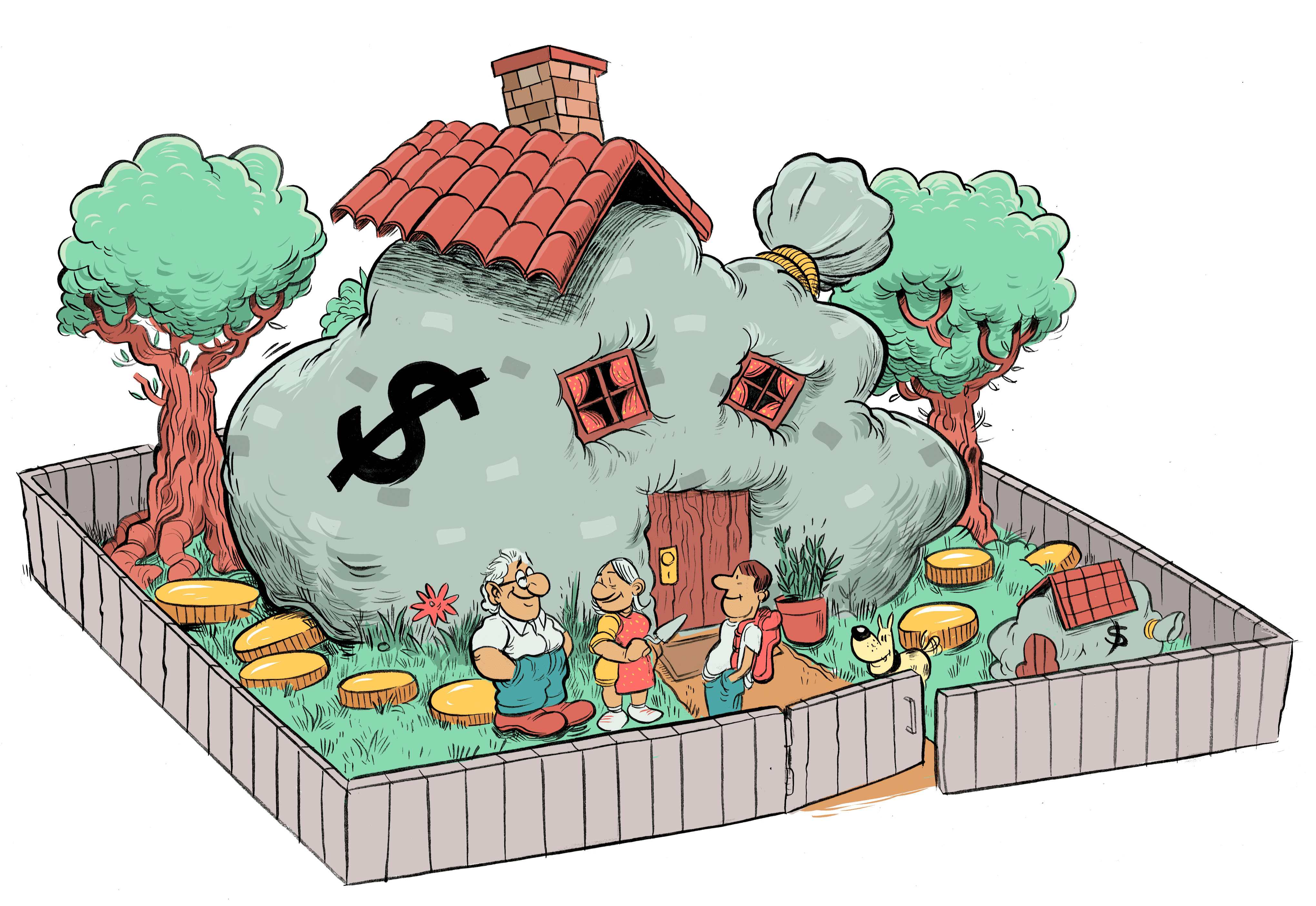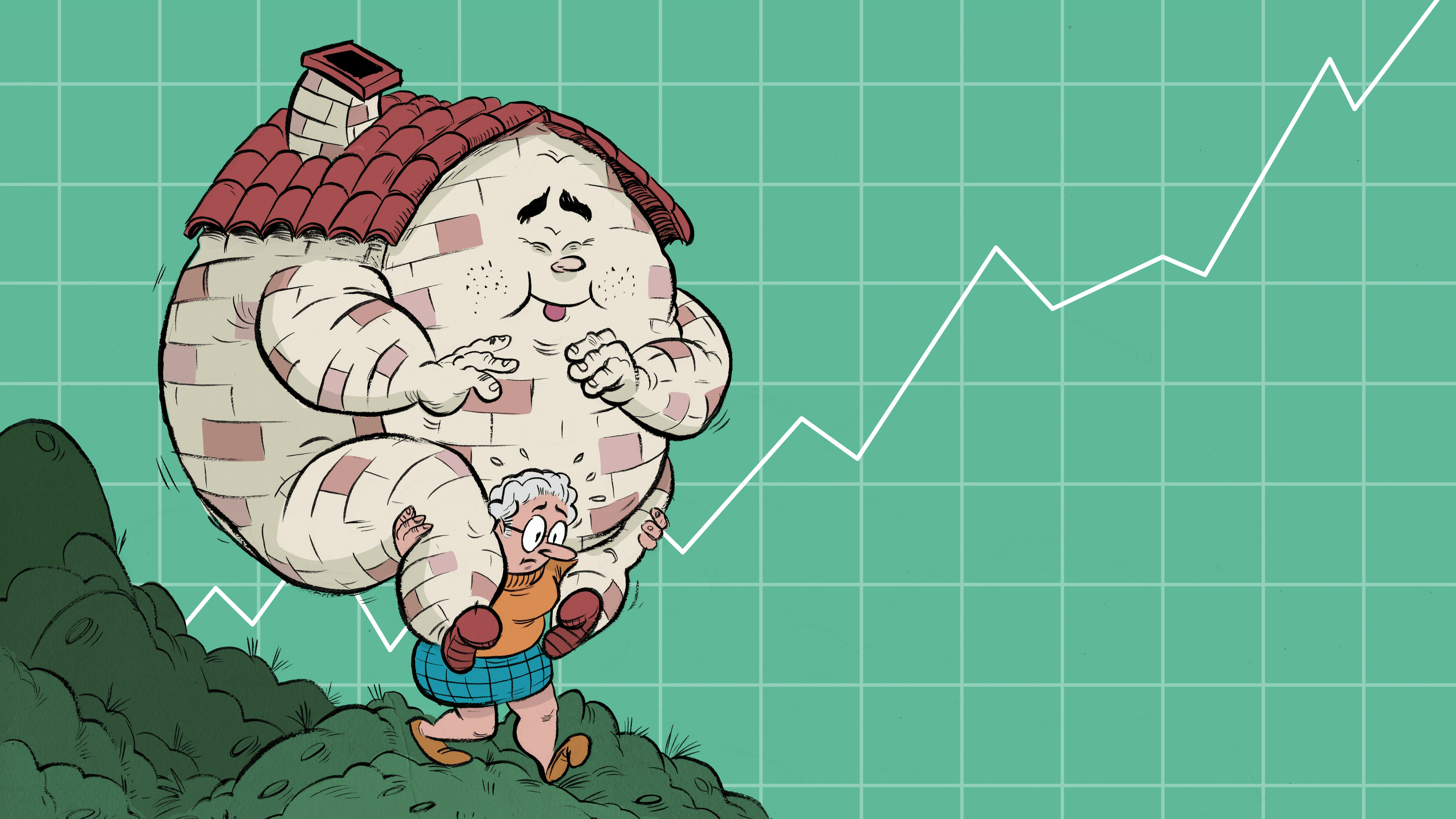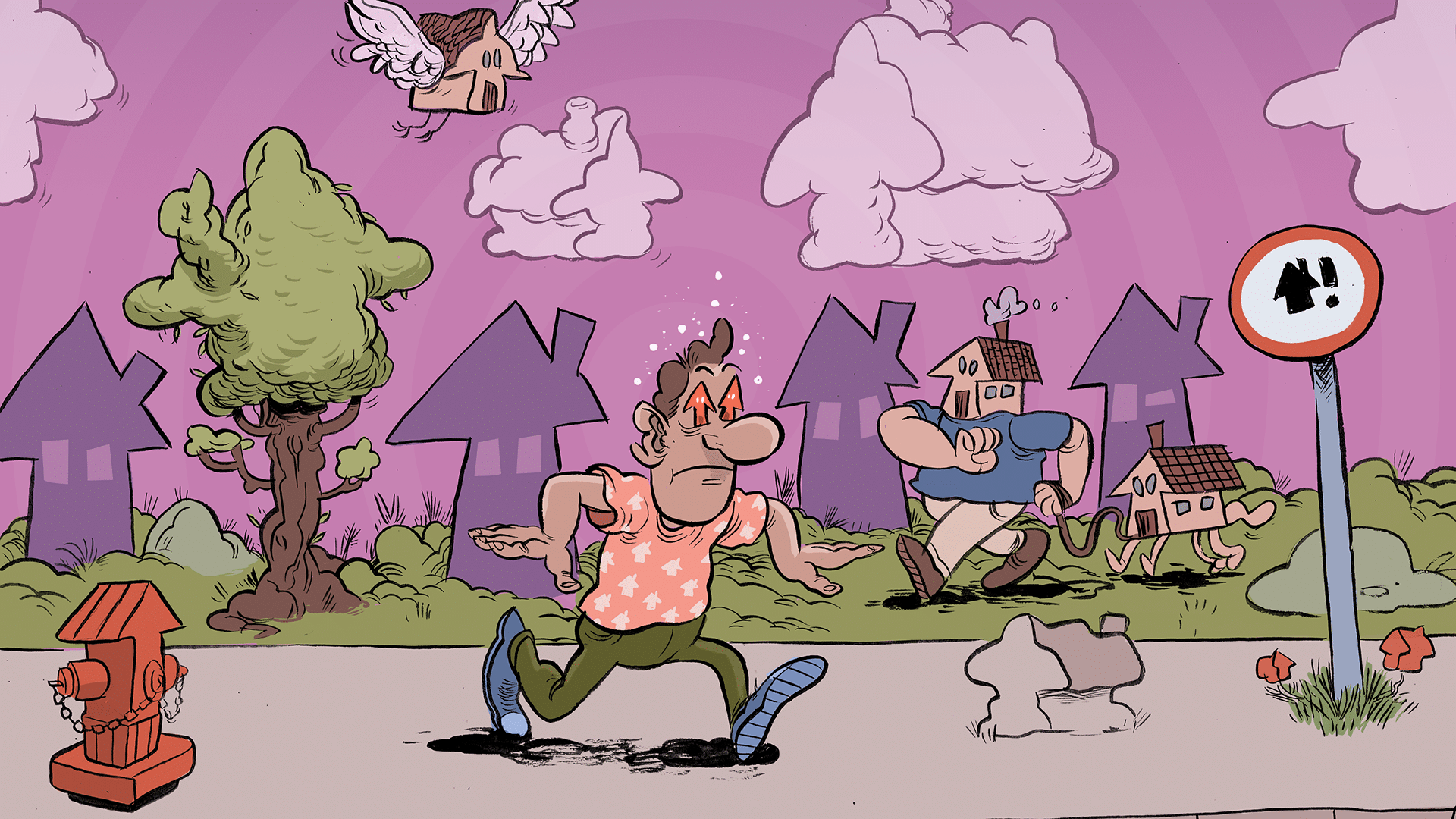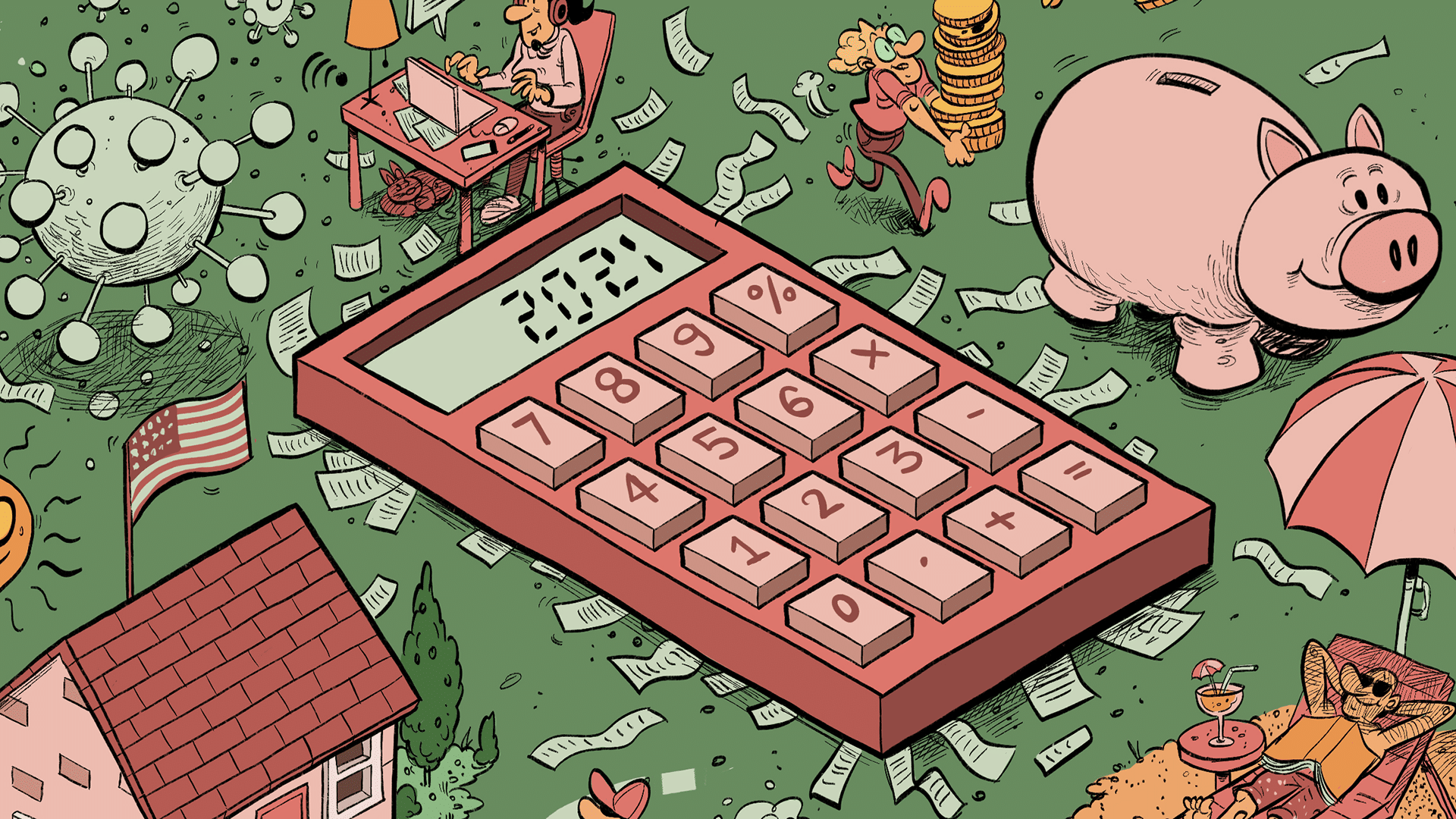
Unlocking your home’s potential: A hot housing checklist
If you’ve watched your home’s value skyrocket in recent years, you may be unsure how to make the most of that equity or even whether it’s time to sell. Here are some key issues you should consider and ideas that may help you move forward.
Everyone’s talking about the housing market. Whether you’re a prospective buyer, investor or casual observer, real estate seems to be top of mind as housing prices continue to rocket upward, rising in January by a year over year record of 28%.1
But what if you already own a home? How can you take advantage of this hot housing market?
“Having significant equity in your home may have you reconsidering how your house can play a role in your wealth,” says Natasha Kovacs, Senior Financial Planner, TD Wealth Financial Planning.
Few people ever imagined the value of their home would have such an oversized impact on their financial outlook. It raises mixed feelings: Many of us naturally regard our homes with emotion rather than with dollar signs. However, ideas may begin to percolate when we see how much other houses on the street are selling for. If you are feeling the same way, here are some key considerations you should be aware of.
If you are…considering extracting cash flow from your home
If you’d like to use your home equity to generate cash flow, there are a couple of options. A Home Equity Line of Credit (HELOC) is a type of real estate secured loan that offers relatively low interest rates and minimum payments. Alternatively, refinancing your mortgage can also allow you to free up some cash without selling.
With either of these options, Kovacs urges caution when taking on debt, especially if you’re in or nearing retirement. “Remember, if any amount is left unpaid when you pass, it will be taken from your estate. You should consider your whole financial picture and the costs associated with each option before making a decision,” she says, adding this is something a financial professional can help you with.
If you are…thinking about helping your kids buy a home
Many parents want to help their kids buy a home. Unfortunately, the housing market is not what it used to be, and many Canadians are now faced with a tough dilemma: How can I give my kids enough money to afford a down payment without sacrificing my own financial goals?
Again, there are several options to consider, but Kovacs says the first thing any parent should do is look at their own financial situation. “Start by immediately removing the amount you’re willing to give from your financial plan and consider how that impacts you,” she says. “From there, you can decide whether or not it’s worth proceeding.”
The next step is to include your child in a planning discussion to ensure you are properly protecting your own finances (through a certified loan, for instance). To avoid heartache later, a serious talk can also help your child understand what they can afford. This will help ensure that once the funds are provided, everyone is protected. For more information, you can check out how to help your kids buy their first home and protect yourself.
If you are…reviewing your downsizing options
If you’re sitting on a house that has seen significant equity growth over the years, but no longer suits your needs, you may be thinking about downsizing. Selling your house now may seem like the perfect opportunity, given current market conditions, but there are a few things you’ll want to consider. For one, where will you go? If you’re hoping to buy a smaller home (perhaps a condo or bungalow that’s better suited to senior years), you might be surprised by how the market has inflated even the most modest properties.
“Know your numbers before you begin searching because first and foremost, going to look at homes is emotional. You don’t want to find yourself overleveraged,” Kovacs says. “You’ll also want to consider the expenses associated with any move.”
In addition to higher real estate costs, moving costs and the land transfer tax, she says many people forget that the new condo they just purchased can come with a higher property tax bill and exorbitant condo fees as well. “This can potentially affect your day-to-day cash flow,” she says.
You may be able to better capitalize on the sale of your home by moving farther away from your current region — perhaps somewhere more remote or rural. However, this too comes with its own implications. For example, will your new community have the health amenities you require as you age?
If you are…examining a renovation
If downsizing is something you’re considering for the future, but isn’t pressing right now, you may want to look into renovating your home. Renovations could add substantial value to your house down the road while making it more useful and enjoyable to you now.
A finished basement or in-law suite, for example, are among the most valuable renovation projects. Kovacs says that often homeowners prefer to do renovations slowly. If that’s the case, you might want to get started sooner rather than later, particularly if you’re hoping to sell in the near future. Additionally, if you’re unwilling to dip into your savings or investments, you could consider a HELOC to finance the expense.
If you are…weighing extra mortgage payments vs. an RRSP contribution
If you have a mortgage and your home’s value is rising steadily, is it smart to pay down the mortgage with extra cash so you fully own your home sooner? The first thing to do is to look at your overall tax rate, says Kovacs: “If you’re in a very high tax bracket, it’s almost a no-brainer. To maximize your tax efficiency, you’ll likely want to extend your mortgage payment and put money into your Registered Retirement Savings Plans (RRSPs).” If you’re not in a high tax bracket though, Kovacs recommends you take a closer look at what you’re paying for your mortgage, and keep in mind that you’re using after-tax dollars. She says, “If you look at your projections over time, even using a conservative interest rate, you may find that your after-tax annual return is higher than your mortgage payments.”
While the drastic increase in home values may be a good reason to recalculate how that equity fits into our future financial plans, we all understand that the roof over our heads is not an investment account and it’s important to be cautious. The key may be, therefore, unlocking a home’s value without exposing ourselves to any financial risks.
“It’s critical to think beyond the present moment,” Kovacs says when speaking of your housing options. She says if you’re considering revisiting your mortgage, downsizing or even renovating, understanding how much money you’ll need in retirement is key — especially if you’re already retired. If you are hesitant as to what your next move should be, Kovacs says meeting with a financial planner or advisor can sort out what may be best for your situation and your personal goals.
TAMARA YOUNG
MONEYTALK LIFE
ILLUSTRATION
DANESH MOHIUDDIN
- Rishi Sondhi, Canadian Existing Home Sales (January 2022), TD Economics, February 15, 2022, accessed Mar. 11, 2022, https://economics.td.com/ca-existing-home-sales. ↩















